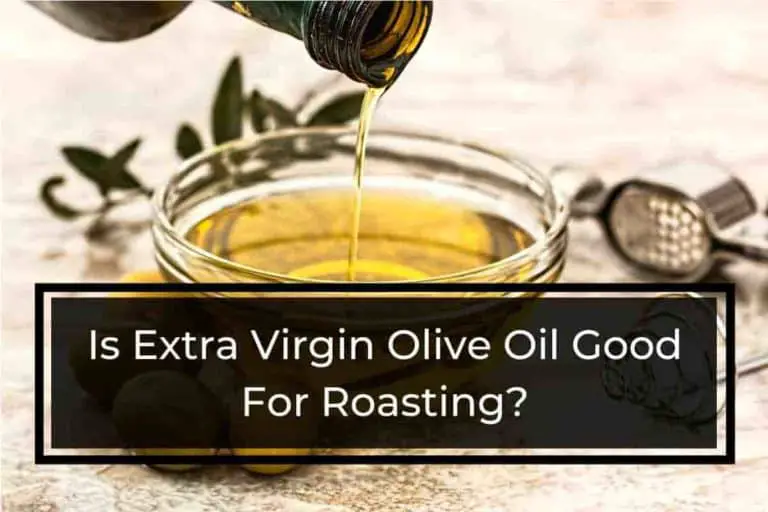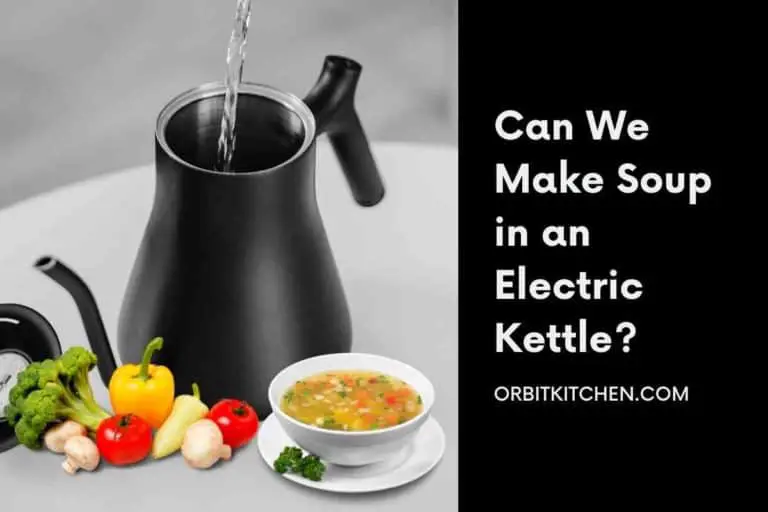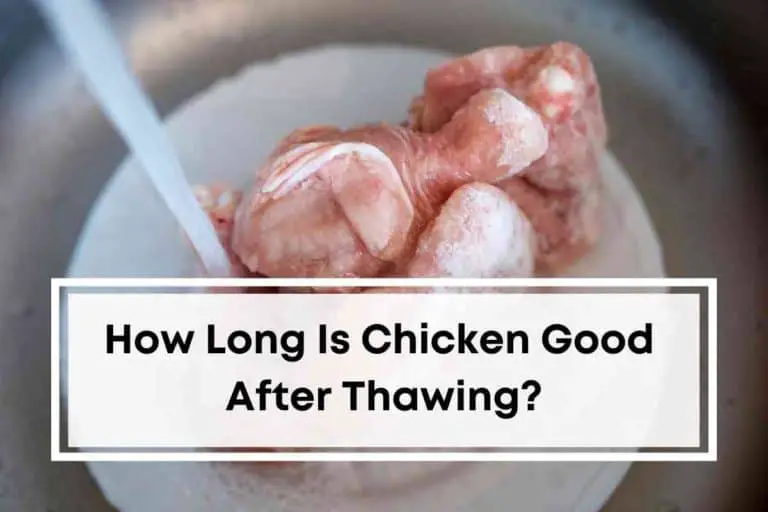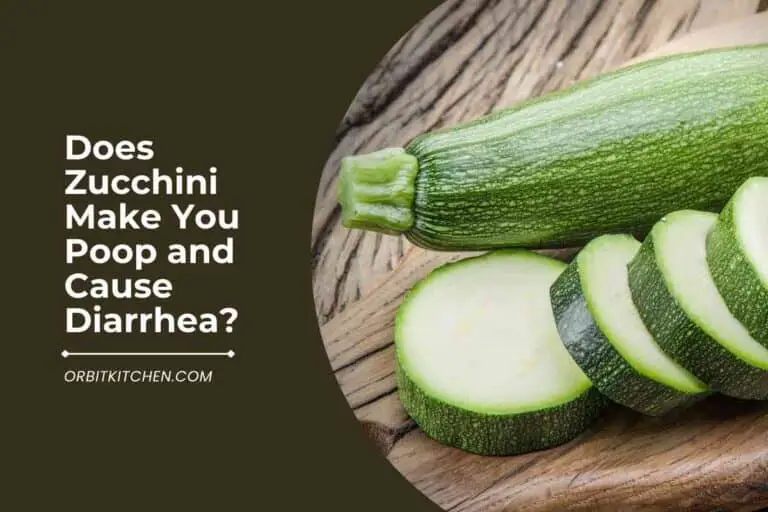Why Does Milk Turn Brown When Heated: Here’s the Answer
If you heat milk for too long, you may have noticed that its color starts to turn brown and its taste also changes. Brown milk sometimes smells strange and can be annoying. Have you ever wondered why milk turns brown when heated?
Milk turns brown because of the Maillard reaction. Milk contains 85-88% of water which evaporates on heat and becomes concentrated. After that, the non-enzymatic browning of milk occurs due to the Maillard reaction. The pressure in the milk increases its temperature, which causes the caramelization of the lactose (sugar) in the milk.
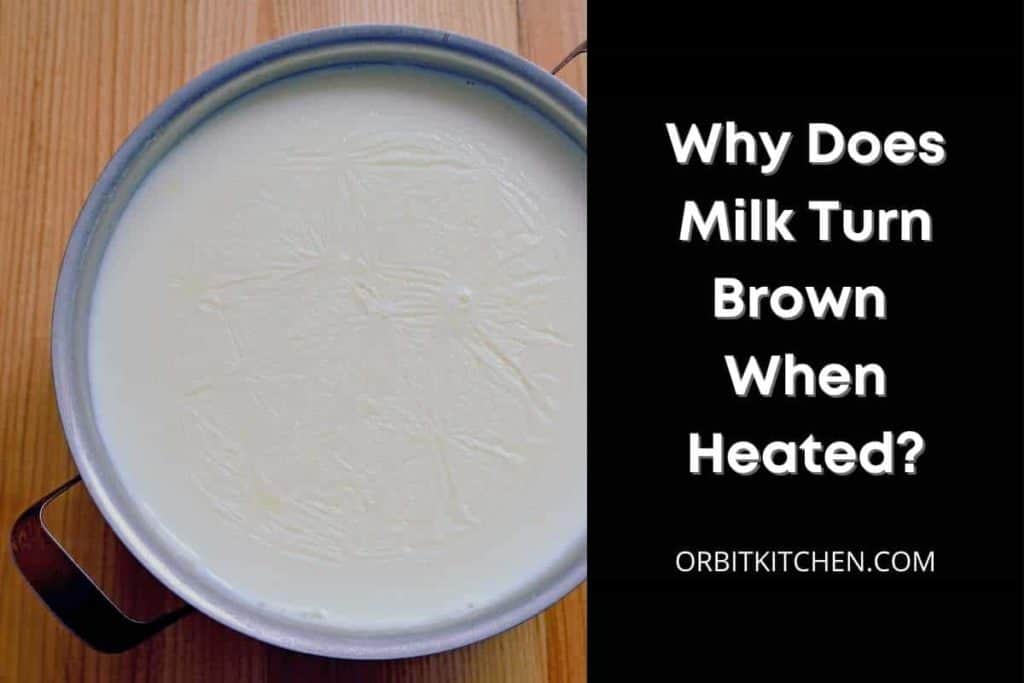
The browning of milk depends upon the vessel, quantity of milk, and the heat source. Milk turns brown only at low heat because if the milk is heated at high heat, all the inorganic components in the milk will burn to smoke and result in black carbon. Keep reading to learn more about why milk turns brown and what happens further?
If you are interested in some really high-quality saucepan with a lid for boiling milk, you can find them on Amazon here.
Why Does Milk Turn Brown After Boiling?
The milk turns brown after boiling due to Lactose milk reacting with the complimentary chain of amino acids in milk protein (mostly ε-amino group of lysine) and forming a variety of Maillard reactions, this reaction has three routes.
First is the formation of the Amadori product, followed by 3-deoxyinosine or 1-deoxyinosine, depending on the pH of the reaction. The fourth route is the 4-deoxyinosine of disaccharides.
Thus, the Maillard reaction in milk proceeds via the three routes described above. The Maillard reaction forms melanoidins (browning compounds). These compounds cause the browning of milk after boiling.
Why Milk Becomes Yellow After Boiling?
The reason milk becomes yellow after boiling is due to the Maillard reaction. This is a chemical reaction that occurs when amino acids and sugars are exposed to high temperatures.
When milk is boiled, the proteins and sugars in the milk undergo this reaction, which causes the milk to change color and develop a slightly different flavor.
What Happens If You Boil Milk For Too Long?
If you boil milk for too long, the water from it will evaporate, and the content of the milk will start to concentrate and give a semi-solid texture to the milk. But this turning of milk into a semi-solid mass depends upon the amount and time of heating.
If you heat milk on high heat, it will boil off and burn on the bottom of the pan, but if it cooks on low heat, the water will slowly evaporate, and the milk will form a thick fat layer and start to concentrate. The milk will also leave hard residues on the sides of the pan, which are difficult to clean.
The heating of milk for so long also denatures the whey protein of milk, which causes milk curdling. The nutrient content of milk also gets lost if boiled for too long, especially the B1, B2, and B12 vitamins, which evaporate on high heat.
Milk is a vital source of vitamins and protein, but these two nutrients are also heat sensitive. If milk is boiled above 100℃, both vitamins and protein from milk will be destroyed and denatured, so the milk will no longer remain that much beneficial.

Check out this top-rated saucepan for boiling milk on Amazon here.
Does Milk Quantity Decrease When Boiled Too Long?
When the milk boils for too long, it decreases the quantity of milk by water evaporation.
The milk is a mixture of fats, water, and protein; when you heat milk for too long, the water content evaporates, and other milk contents concentrate, decreasing its volume. The milk concentration takes place gradually on a low flame for a long time.
The milk content concentrates into a semi-solid mass form, thus decreasing its quantity. The milk keeps on making the skin on the top, and the fats help in protein coagulation of milk which concentrates the milk further.
Read Also: Can You Cool Cookies in the Fridge?
Does Boiling Milk Too Long Will Change The Milk Taste?
Boiling milk for too long indeed changes its taste because of the protein that changes its shape; this changing shape causes the milk flavor to alter.
Another reason is the Maillard reaction, which causes the alteration of color and browning of milk.
When the water evaporates, the Maillard reaction occurs, which causes the altering of flavor by caramelizing the sugar. The sweet taste of milk comes from lactose, a disaccharide of glucose and galactose in the milk.
When you heat milk on low heat for too long, it skims, which gives an extra sweet taste.
Read Also: What Temperature is the Best for Baking a Cake?
How Long Should You Heat the Milk to Boil Properly?
If the milk is raw, it should be boiled at 100℃ for less than 5-6 minutes, but pasteurized milk should be boiled at 100℃ for less than 3-4 minutes to retain the nutrients and protein content.
The milk should be boiled on a medium-low flame with continuous stirring to avoid overflowing and curdling. Stirring while boiling helps hold water, carbs, proteins, and fat together in the milk. But do not boil milk for so long as it will destroy the nutrient content present in the milk.
Boiling milk too many times also affects its nutritional content. The milk packs that are pasteurized but kept at room temperature should be heated, but those packs with a UHT label do not need boiling even if kept at room temperature.
Read Also: Why Do Cakes Shrink After Baking?
How to Know That Milk is Fully Boiled?
After boiling, the cream layer of fats that forms on the milk signifies that it has been fully heated. As milk is heated, fat lighter than water gathers on the surface with some proteins.
You can also use an infrared thermometer to check whether the milk has reached its boiling temperature or not.
When boiling milk, bubbles appear in the milk, which indicates that it is boiling. After heating, the milk color and flavor change also show that milk has been heated properly.
Conclusion
Milk is a crucial source of calcium, vitamins, and many proteins, but wrong milk handling could lead to non-beneficial milk. You should boil milk at a specific temperature only to kill microbes, not the nutrients.
Milk is prone to browning if boiled or heated for so long because of the Maillard reaction. Too much boiling also alters the taste of milk and decreases its quantity.
Experts suggest that 2-3 minutes of boiling is perfect for keeping the nutrient content of milk in it. Therefore, you must carefully boil your milk not to denature or destroy the nutrients.

